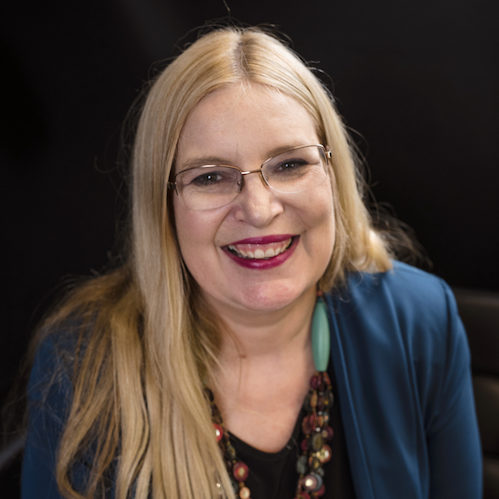A young person’s spatial reasoning ability has long been an indicator of their future success in STEM achievement. However, until now, there has been little formal research done to investigate methods to improve spatial reasoning skills in young people as well as any related changes in students’ attitudes towards STEM that may occur.
Now, a new Australian university research study reveals compelling evidence that using the Makers Empire 3D learning program can significantly improve primary school students’ spatial reasoning skills, whilst also improving student’s attitudes and positive feelings towards STEM and Design Thinking.
Makers Empire is excited to be partnering with UniSA Education Futures at University of South Australia on an innovative research project to measure the impact that 3D learning experiences have on the development of students’ spatial skills and dispositions for STEM learning.
Recent research has highlighted the important role that spatial reasoning skills contribute to future success in STEM learning, and STEM based careers. There is also evidence that spatial skills are malleable and can be improved with practice, particularly at a young age.
3D modelling is widely accepted as a great way to improve students’ spatial skills and engage them in spatial reasoning. At Makers Empire, we love the regular reports we hear from teachers about the improvements they have noticed in their students’ spatial skills after using Makers Empire.
For example, Megan Koop, a classroom teacher at Blakeview Primary School told us that by creating nature play equipment in Makers Empire,
“Students developed their spatial awareness through the ability to transfer and manipulate their 2D design plans and reproduce them into 3D design models. They needed to be able to visualise and manipulate shapes, rotate viewpoints, change sizing scales and consider the positioning.”
The students’ 3D designs were firstly 3D printed and then recreated, built and installed at the school!

Until recently, it has been difficult to measure and track the spatial skills of younger students, as most tools have been designed for senior secondary, and university level students.
However, a tool recently developed and validated by the University of Canberra has been designed for measuring the spatial ability of middle school students (11-13 years old). The Spatial Reasoning Instrument (SRI) measures three main spatial elements: mental rotation, spatial orientation, and spatial visualisation and is aligned to the type of spatial manoeuvres and task representations that middle-school students may encounter in mathematics and Science, Technology, Engineering and Mathematics (STEM)-related subjects.
The SRI will be used in the UniSA Education Futures at University of South Australia research project to investigate the impact of Makers Empire program on the spatial reasoning skills of school students and dispositions for STEM learning. It is anticipated that this research will be completed by the end of 2021 and that the results may be presented at conferences or written up in journals (without any identifying information).
Associate Professor Simon Leonard at the University of South Australia says, “There are some important pieces coming together in this project. We know from research over the last decade that spatial reasoning is a really key determinate of success in STEM education and career pathways, and we also know that engaging our bodies in the learning can really help develop spatial thinking. Most of the research supporting these findings though, has happened on a fairly small scale. With this project we are working with Makers Empire to take the research out of the ‘lab’ and out to real schools on scale. This will tell us a lot about how we design this kind of learning by ‘doing’ when we dealing with the complexity of real learning environments.”

110 year 6 and 7 teachers from 89 public, private and Catholic primary schools across South Australia have nominated to participate in the spatial reasoning research project during term 2 this year.
A group of participating teachers attended a PD session during the recent Term 1 school holidays, focussing on:
After the PD session, Jennifer Miller, a teacher from Suttontown Primary School wrote to us: “Thank you for the information session today. I am looking forward to using Makers Empire and contributing to this study… I was initially nervous about using the program and wanted more time to get my head around using it but, after the training and having a little go myself, I feel better about using the program and think my students will love it!”
Teachers will be asking their students to complete the SRI at the beginning of the term. The students will then work on Makers Empire projects at least once a week for the rest of term. At the end of the term, students will complete the SRI test again and teachers will submit the anonymised results to UniSA to help inform the research project.
Mandi Dimitriadis, Director of Learning at Makers Empire, says “Spatial reasoning is a really important capability for setting our students up for future success in STEM and life. It’s such a great opportunity for Makers Empire to partner with UniSA to understand the impact that our 3D learning program has on students’ spatial skills. We’ve had such an amazing response from Year 6 and 7 teachers wanting to participate in the project and their efforts are really going to help us understand more about spatial reasoning and how it develops.”


Please wait while you are redirected to the right page...